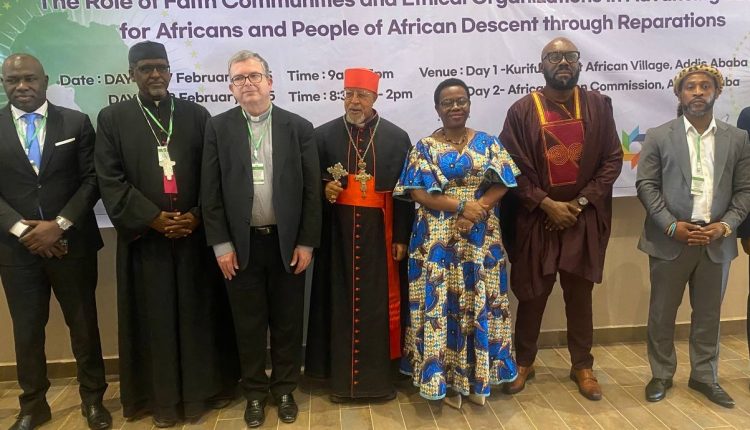Faith Leaders Gather in Ethiopia to Promote Justice for Africans and People of African Descent
Addis Ababa, February 27, 2025 (FMC)** – A workshop centered on the theme ‘The Role of Faith Communities and Ethical Organizations in Advancing Justice for Africans and People of African Descent through Reparations’ is currently taking place in Ethiopia. The event is organized by Heavenly Culture, World Peace, Restoration of Light (HWPL) in collaboration with the African Union (AU).
For 2025, the AU has adopted the theme “Reparations for Africans and People of African Descent as a Means to Achieve Justice,” aimed at addressing the enduring impacts of colonialism, slavery, and systemic discrimination. This initiative seeks to unite Africans on the continent and those in the diaspora in their quest for justice.
The workshop will delve into spiritual and ethical perspectives on reparations, examining the moral, theological, and philosophical underpinnings of reparative justice as informed by various faith traditions from Africa and its diaspora.
Opening the event, AUC Deputy Chairperson Monique Nsanzabaganwa highlighted that the 2025 AU theme serves as a call to action. She underscored the potential of faith as a catalyst for change and called upon faith leaders to harness this power effectively.
The workshop aims to mobilize faith-based and ethical organizations, exploring how these groups can gather resources, raise awareness, and contribute to the overarching reparations agenda at community, national, regional, and continental levels.
The legacies of the Trans-Atlantic Slave Trade, slavery, and colonialism have caused deep and lasting wounds among Africans and people of African descent, whose impacts are still present today. On a social and cultural level, the forced displacement of millions shattered communities, disrupted family structures, and dismantled social institutions. Traditional customs and identities faced suppression, leading to cultural fragmentation that obstructed the intergenerational transmission of heritage.
Economically, these historical injustices deprived African nations of their resources and labor, with enslaved Africans generating immense wealth for colonial powers without compensation, rights, or dignity. Colonial exploitation drained Africa’s natural resources to benefit Europe, leaving many African economies impoverished and reliant.
Politically, colonization undermined the sovereignty of African nations, replacing traditional governance with foreign rule that fractured political systems. The borders imposed during colonial rule have since fueled divisions and conflicts.
This workshop, along with other continental and international initiatives, serves as a crucial mechanism for the AU’s reparations efforts, fostering widespread international recognition and support. The two-day event is attended by leaders from various faiths, AU representatives, ambassadors, and delegates from multiple regional, continental, and international organizations.

